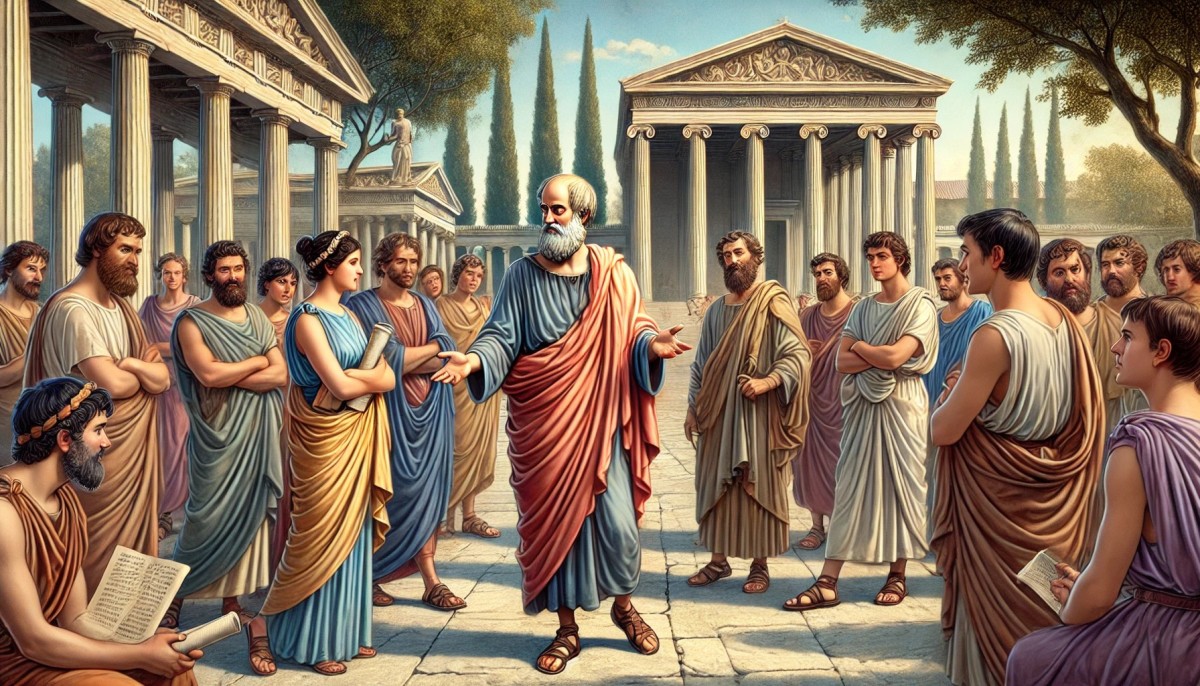Assigning Value: Why Do People Think Something is Good or Bad?
Sorting out Valuation Theories
One of the questions social scientists have attempted to answer is: why do various people and groups think something is good or bad, right or wrong, or fair or unfair? In other words, how do individuals determine their values? Raymond Bourdon attempts to tackle this question in his book The Origin of Values. This hub attempts to make sense of some of the various theories Bourdon discusses in his work.
Friedrich Nietzsche (1844-1900)

Nietzsche: Values are Illusions
Friedrich Nietzsche was a German philosopher of the late 19th century who challenged the foundations of Christianity and traditional morality. He believed in life, creativity, health, and the realities of the world we live in, rather than those situated in a world beyond. Central to his philosophy is the idea of “life-affirmation,” which involves an honest questioning of all doctrines that drain life's energies, however socially prevalent those views might be. Often referred to as one of the first existentialist philosophers, Nietzsche's revitalizing philosophy has inspired leading figures in all walks of cultural life, including dancers, poets, novelists, painters, psychologists, philosophers, sociologists and social revolutionaries. (Stanford Encyclopedia of Philosophy).
Nietzsche held that values were mostly illusions stemming from the following logic:
"I believe that 'X is good' and I am convinced that I believe 'X is good' because X is actually good."
Thus, a person assigns value simply by their own intuition and without any empirical evidence.
Karl Marx

Karl Marx: Values Dictated by Social Class
Karl Marx (1818-1883) is best known not as a philosopher but as a revolutionary communist, whose works inspired the foundation of many communist regimes in the twentieth century. It is hard to think of many who have had as much influence in the creation of the modern world. Trained as a philosopher, Marx turned away from philosophy in his mid-twenties, towards economics and politics. However, in addition to his overtly philosophical early work, his later writings have many points of contact with contemporary philosophical debates, especially in the philosophy of history and the social sciences, and in moral and political philosophy. Historical materialism — Marx's theory of history — is centered around the idea that forms of society rise and fall as they further and then impede the development of human productive power. Marx sees the historical process as proceeding through a necessary series of modes of production, culminating in communism. Marx's economic analysis of capitalism is based on his version of the labour theory of value, and includes the analysis of capitalist profit as the extraction of surplus value from the exploited proletariat. The analysis of history and economics come together in Marx's prediction of the inevitable economic breakdown of capitalism, to be replaced by communism. However Marx refused to speculate in detail about the nature of communism, arguing that it would arise through historical processes, and was not the realisation of a pre-determined moral ideal. (Stanford Encyclopedia of Philosophy).
Karl Marx held to the idea that values were dictated by social class, following this scheme:
"I think I believe that X is good because X is actually good, while in fact I believe X is good because it serves my class interests."
John Rawls (1921-2002)

John Rawls: Assigning Value according to the Fair Distribution of Justice
John Rawls (b. 1921, d. 2002) was an American political philosopher in the liberal tradition. His theory of justice as fairness envisions a society of free citizens holding equal basic rights cooperating within an egalitarian economic system. His account of political liberalism addresses the legitimate use of political power in a democracy, aiming to show how enduring unity may be achieved despite the diversity of worldviews that free institutions allow. His writings on the law of peoples extend these theories to liberal foreign policy, with the goal of imagining how a peaceful and tolerant international order might be possible.
Technically, Rawls cannot be considered as a philosopher of values; however in his scholarly work The Theory of Justice (Rawls, 1971) he offers "a general explanatory scheme" of values (Bourdon, 2001):
"people tend to consider X as good, if and only if they tend to consider X as good in the case where they would be able to make an entire abstraction of their interests, in a word, where they consider X as good once placed under the 'veil of ignorance.'"
Emile Durkheim (1858-1917)

Neo-Durkheimians: Values Come from Collective Consciousness
Emile Durkheim is considered by many to be the father of sociology. He is credited with making sociology a science, and having made it part of the French academic curriculum as "Science Sociale". During his lifetime, Emile Durkheim gave many lectures, and published an impressive number of sociological studies on subjects such as religion, suicide, and all aspects of society.
Neo-Durkheimians (or followers of Durkheim) hold a collective consciousnees view of values:
"a given individual in a society would believe that "X is good," because everybody around him believes so."
Max Weber (1864-1920)

Weber: Values are Derived from Rational Thought
Arguably the foremost social theorist of the twentieth century, Max Weber is also known as a principal architect of modern social science along with Karl Marx and Emil Durkheim. Weber's wide-ranging contributions gave critical impetus to the birth of new academic disciplines such as sociology and public administration as well as to the significant reorientation in law, economics, political science, and religious studies. His methodological writings were instrumental in establishing the self-identity of modern social science as a distinct field of inquiry; he is still claimed as the source of inspiration by empirical positivists and their hermeneutic detractors alike. More substantively, Weber's two most celebrated contributions were the “rationalization thesis,” a grand meta-historical analysis of the dominance of the west in modern times, and the “Protestant Ethic thesis,” a non-Marxist genealogy of modern capitalism. Together, these two theses helped launch his reputation as one of the founding theorists of modernity. In addition, his avid interest and participation in politics led to a unique strand of political realism comparable to that of Machiavelli and Hobbes. As such, Max Weber's influence was far-reaching across the vast array of disciplinary, methodological, ideological and philosophical reflections that are still our own and increasingly more so. (Stanford Encyclopedia of Philosophy).
While Nietzsche and Marx thought values were products of self-delusion, Weber believed they are based on rational thought:
"When one thinks that "X is good," he has good reasons for thinking so, and he thinks so because of these reasons."
Contemporary Relativistic View of Values
Bourdon (2001) points out that the contemporary relativistic view of values is divided between norms and values:
"The norm X is good as soon as I can consider that X produces positive effects while values should be distinguished from norms by the fact that they cannot be justified merely by their effects. Values are endorsed under ungrounded decisions or some presupposed psychological, sociological, or biological forces."
Jurgen Habermas (1929-present)

Habermas: Values Derived through Free Discussion
Jürgen Habermas currently ranks as one of the most influential philosophers in the world. Bridging continental and Anglo-American traditions of thought, he has engaged in debates with thinkers as diverse as Gadamer and Putnam, Foucault and Rawls, Derrida and Brandom. His extensive written work addresses topics stretching from social-political theory to aesthetics, epistemology and language to philosophy of religion, and his ideas have significantly influenced not only philosophy but also political-legal thought, sociology, communication studies, argumentation theory and rhetoric, developmental psychology and theology. Moreover, he has figured prominently in Germany as a public intellectual, commenting on controversial issues of the day in German newspapers such as Die Zeit.
Habermas offers a counterproposal to relativistic thought preferring a more rational approach:
"X can be considered good if a freely discussing assembly would reach the conclusion that X is good."
Values by Instinct
"I believe that X is good because an instinct pushes me to feel so. But, as I do not want to see myself as moved by instincts, I cover my belief with a 'logical varnish.'"
Axiological vs. Instrumental Values
Values based on axiological beliefs or rationality are values endorsed because they are right; that is I endorse such and such values regardless of whether they bring me a positive or negative result.
Values based on instrumental rationality are those held because it is favorable to hold them; that is by endorsing such and such values I will receive a favorable result.
The Cognitivst Model
Raymond Boudon author of the Origin of Values argues for a cognitivist model which postulates that:
1. Until proof to the contrary, social actors should be considered as rational in the sense that they have strong reasons for believing what they believe, for doing what they do, etc.
2. In particular cases, these reasons can be realistically treated as dealing with the difference between costs and benefits of alternative lines of action. In other cases, they cannot: in particular when a decision, an action, rests upon normative or cognitive beliefs, the reasons will generally not belong exclusively to this type. This results from the fact that beliefs are unintentional, and that normative beliefs are not always consequentially grounded.
3. In some circumstances, the core of some action is constituted by "cognitive" reasons: he did X because he blieved that Z is likely true, etc.; and because he had strong reasons for believing so.
4. In some circumstances, the core of some action is constituted by "axiological" reasons: he did X because he believed Z is fair, good, unfair, etc., and had strong "non-consequential" reasons for believing so. (Boudon, p.67).
Values Based on Personal Worldview
Ultimately, values are endorsed in accordance with a person's worldview. A person's worldview is how they perceive and act towards the world around them. For instance, if I believe God exists, that he has ultimate authority over the heavens and the earth, and that he has revealed his standards to the world, then I will derive my values from his revealed standards.
If however, I believe that there is no God, that my life is an accident of nature, and that there is no ultimate standard then I will derive my values from whatever seems most natural to me or from the standard set by those in my neighborhood. For instance, if I was born a white man in the southern states of America before The Civil Rights Act of 1964, I would feel justified to hate and discriminate against colored peoples. But, this is absurd and most human beings on the earth would say that such a thought would not be acceptable. But why? By what standard do they object to my hatred towards blacks? (This is merely hypothetical for I do not hate blacks or african americans.) There objections must come by way of some mostly universal innate principle that humans should love one another and treat each other with dignity. If then there is such a universal principle then there must be some absolute standard. This argument has been proposed by C. S. Lewis in Mere Christianity.








